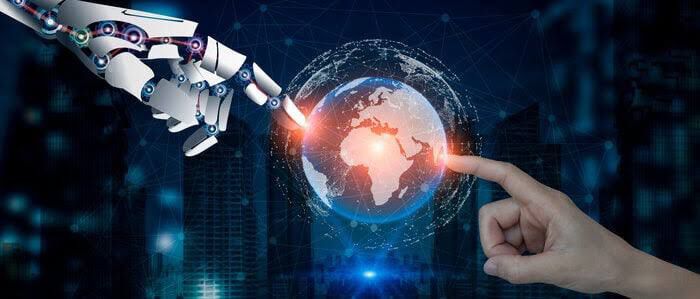Artificial Intelligence (AI) has
come a long way since its inception. What was once confined to sci-fi novels
and movies has now become an integral part of our everyday lives. From virtual
assistants like Siri and Alexa to smart homes and self-driving cars, AI has
seeped into various facets of society. This blog explores the historical
evolution of AI, its growing presence in different industries, and the ethical
considerations that arise as technology races forward.
Historical Evolution of AI
Like many ground-breaking
innovations, AI had humble beginnings. One of the key milestones in AI history
is the Turing Test, proposed by Alan Turing in the 1950s. This test serves as a
benchmark to determine whether a machine can exhibit intelligent behaviour
indistinguishable from that of a human being. However, despite these initial
attempts, AI experienced a period known as the AI Winter, where progress slowed
down due to technical and financial challenges.
The AI revolution Gains Momentum
Fast forward to today, and AI is
experiencing a renaissance. Thanks to advancements in machine learning and the
abundance of big data, AI is rapidly gaining momentum. Virtual assistants have
become commonplace, helping us with tasks such as setting reminders, managing
schedules, and even providing recommendations. Our daily lives are
intrinsically tied to AI technology, creating a seamless integration that we
could once only dream of. Industries and commerce have also harnessed the power
of AI. Manufacturing and services are benefitting from AI-driven automation,
expediting processes and streamlining operations. Sales and marketing efforts
have become more precise, utilizing AI’s data analysis capabilities to target
specific audiences and personalize experiences. AI is transforming healthcare
and scientific research as well, augmenting medical diagnoses and treatments
while accelerating discoveries and breakthroughs.
Ethical Considerations: Fear or Opportunities?
As AI becomes increasingly
prevalent, ethical considerations come to the forefront. Critics fear job
displacement and economic upheaval as automation takes over certain roles.
However, there are also considerable benefits to be gained. AI improves
efficiency, freeing up time and resources for more meaningful tasks. It enhances
decision-making by minimizing human errors, reducing risks and improving
overall outcomes.
The socioeconomic impact of AI is
a topic of extensive debate. While certain jobs may become obsolete, new
opportunities in AI design, development, and maintenance may arise. Human-AI
collaboration is envisioned as a way to empower humanity, as AI augments our
abilities and fills in gaps where we fall short. The key is finding a balance
that preserves jobs while reaping the benefits of this technological revolution.
Final Thoughts: Facing the Brave New AI World
The rise of AI opens up a world
of opportunities and challenges. Embracing the potential of AI while
maintaining ethical standards is vital for a prosperous future. By proactively
addressing concerns such as job displacement and bias, society can harness AI’s
potential to improve efficiency, decision-making, and overall quality of life.

